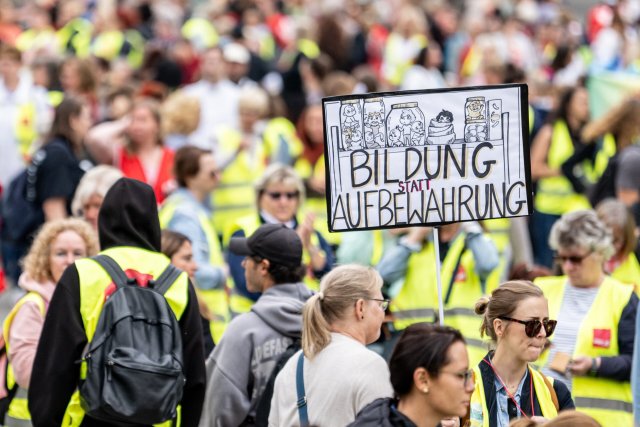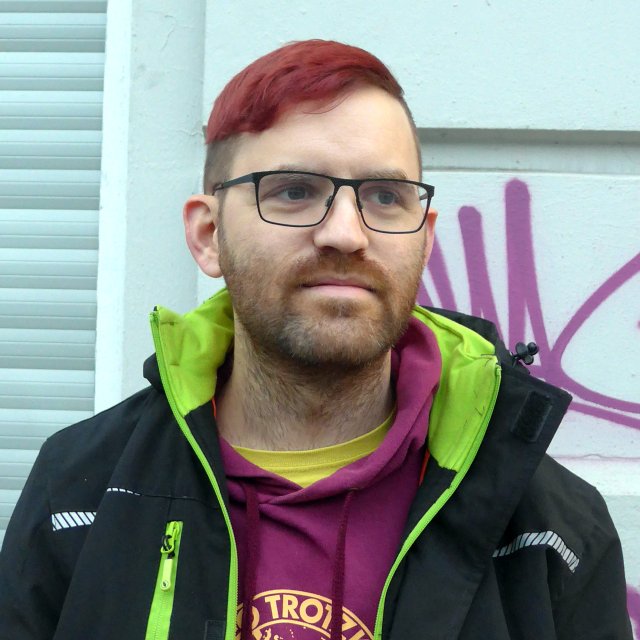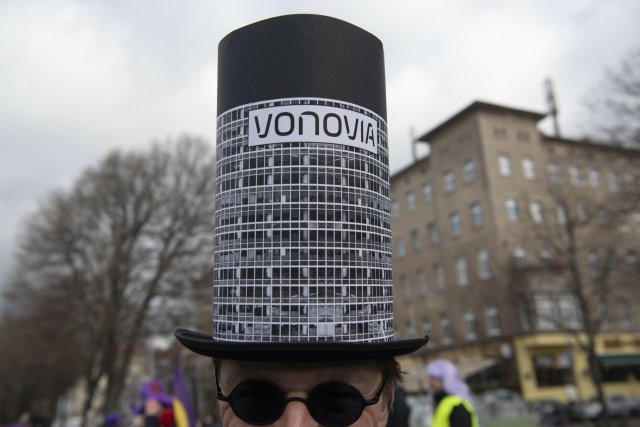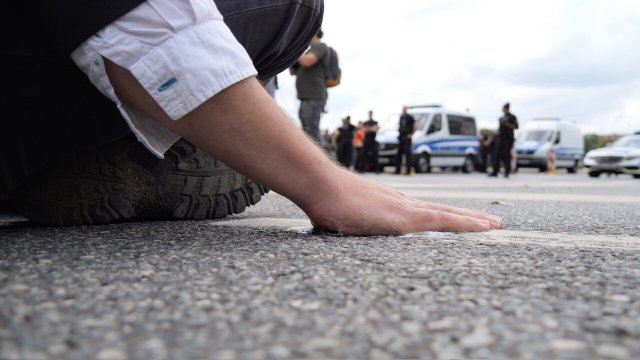- Kommentare
- Kita-Strike in Berlin
Daycare strikes are hell for parents – and we must support them
Berlin's Kita workers were set to begin an unlimited strike. But it was banned by a judge. Nathaniel Flakin calls for solidarity

As a parent, you love your kid more than anything. But you love them even more when you drop them off at daycare. Those seven hours are your only chance to go to the supermarket without a tiny person screaming about Kinder chocolate.
When workers at Berlin's publicly owned Kitas went on strike for five days this summer, it was hell for parents. They had to pacify their offspring with Youtube videos while trying to focus on Zoom calls. It was especially bad for immigrant parents, who are less likely to have grandparents nearby.
Today, Monday, the struggle was going to continue with an unlimited strike. This has never happened in Berlin before. In the two unions, Verdi and GEW, 92 percent and 82 percent of members voted to take the unprecedented step of striking until their demands are met.

Red Flag is a column on Berlin politics by Nathaniel Flakin. It appeared in Exberliner magazine from 2020 to 2023 and found a new home at the Berlin newspaper nd – as their first content in English. If you like a regular dose of very local communist content, please share. Nathaniel is also the author of the anticapitalist guide book Revolutionary Berlin.
Diese Kolumne auf Deutsch lesen.
It's not that daycare workers don't care about children and parents. It's the opposite: they care so much that they can't allow conditions to keep deteriorating. Erzieher*innen report that they are so understaffed that sometimes they are alone in a room with 30 kids, without even the time to change diapers, let alone do anything educational.
As a result, Kita workers get sick far more than average. This isn’t only because of kid viruses – sick days have been going up in the last few years as pressure has grown, a study shows. It comes to the conclusion that Germany would need an additional 97.000 daycare workers to cover the time lost due to illness, vacation and training.
Unions want the city government to sign a contract for Entlastung, for »relief«. In other words, they want written rules about how many workers are needed for how many kids. The government says such a contract is impossible – even though Berlin's public hospitals already signed such agreements with unions, after years of strikes.
On Saturday, however, a court banned the Kita strike. The reasons are complex, but the bottom line is that workers in Germany only are allowed to strike under certain circumstances: They only have a right to form coalitions, while strikes are limited to very narrow parameters. In practice, a judge can declare workers' actions to be »disproportionate« and therefore illegal. The union is appealing this attack on workers’ rights.
One petition signed by over 5.000 parents opposes a strike »carried out on the backs of the children«. But it's not the strike that endangers kids – it’s the permanent understaffing. Kitas are trapped in a vicious circle: the work is impossible due to a lack of personnel; therefore, people go part time or quit; that makes the problem even worse. The only solution would be to break with Germany's permanent austerity regime and invest in childcare.
But Berlin's Senate has denied there is a problem – according to the education senator, there is no »conflagration«. That makes you wonder why 80-90 percent voted to strike, and why so many are sick.
As parents, the strikes are a crushing inconvenience. My friend Bob told that his brain gets »fried« trying to work with kids at home: »We end up having to work late at night to keep up with our responsibilities.«
But imagine what would happen if all those daycare workers quit! Then every day would be like a strike day.
The current strikes affect only the publicly-owned Kitas in Berlin, with about 29.000 kids and 7.000 employees – or about a fifth of the total. My own kid’s Kita is run by a non-profit. If my Kita was out of service for a week, I know it would test my solidarity. But Bob said he went to a union demonstration in front of city hall last Friday, and that reminded him how important high-quality childcare is for everyone. He was happy that the union had reached out to parents this time.
This is going to be my last column here at »nd«. This newspaper, which first appeared as »Neues Deutschland« back in 1946, offered a new home for my online column on Berlin politics after it left Exberliner magazine. I want to thank the editors of »nd« for trying out this experiment with their first content in English. Unfortunately, though, it didn't work. Lots of English-speaking Berliners want news and commentary from an anticapitalist perspective – but we couldn't figure out how to draw them to this German-language website. I will continue to write articles in German for »nd« and keep searching for a new home for my column.
Das »nd« bleibt. Dank Ihnen.
Die nd.Genossenschaft gehört unseren Leser*innen und Autor*innen. Mit der Genossenschaft garantieren wir die Unabhängigkeit unserer Redaktion und versuchen, allen unsere Texte zugänglich zu machen – auch wenn sie kein Geld haben, unsere Arbeit mitzufinanzieren.
Wir haben aus Überzeugung keine harte Paywall auf der Website. Das heißt aber auch, dass wir alle, die einen Beitrag leisten können, immer wieder darum bitten müssen, unseren Journalismus von links mitzufinanzieren. Das kostet Nerven, und zwar nicht nur unseren Leser*innen, auch unseren Autor*innen wird das ab und zu zu viel.
Dennoch: Nur zusammen können wir linke Standpunkte verteidigen!
Mit Ihrer Unterstützung können wir weiterhin:
→ Unabhängige und kritische Berichterstattung bieten.
→ Themen abdecken, die anderswo übersehen werden.
→ Eine Plattform für vielfältige und marginalisierte Stimmen schaffen.
→ Gegen Falschinformationen und Hassrede anschreiben.
→ Gesellschaftliche Debatten von links begleiten und vertiefen.
Seien Sie ein Teil der solidarischen Finanzierung und unterstützen Sie das »nd« mit einem Beitrag Ihrer Wahl. Gemeinsam können wir eine Medienlandschaft schaffen, die unabhängig, kritisch und zugänglich für alle ist.







